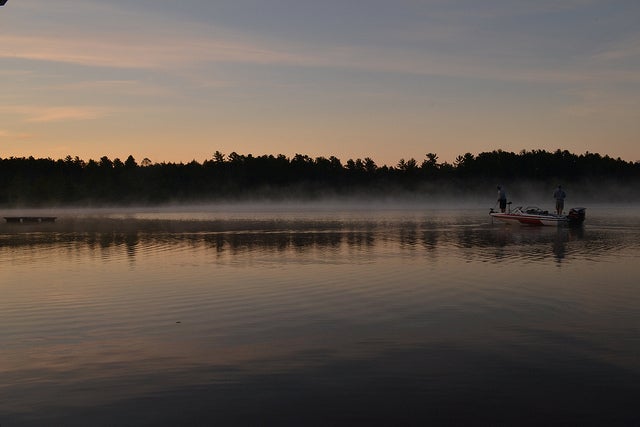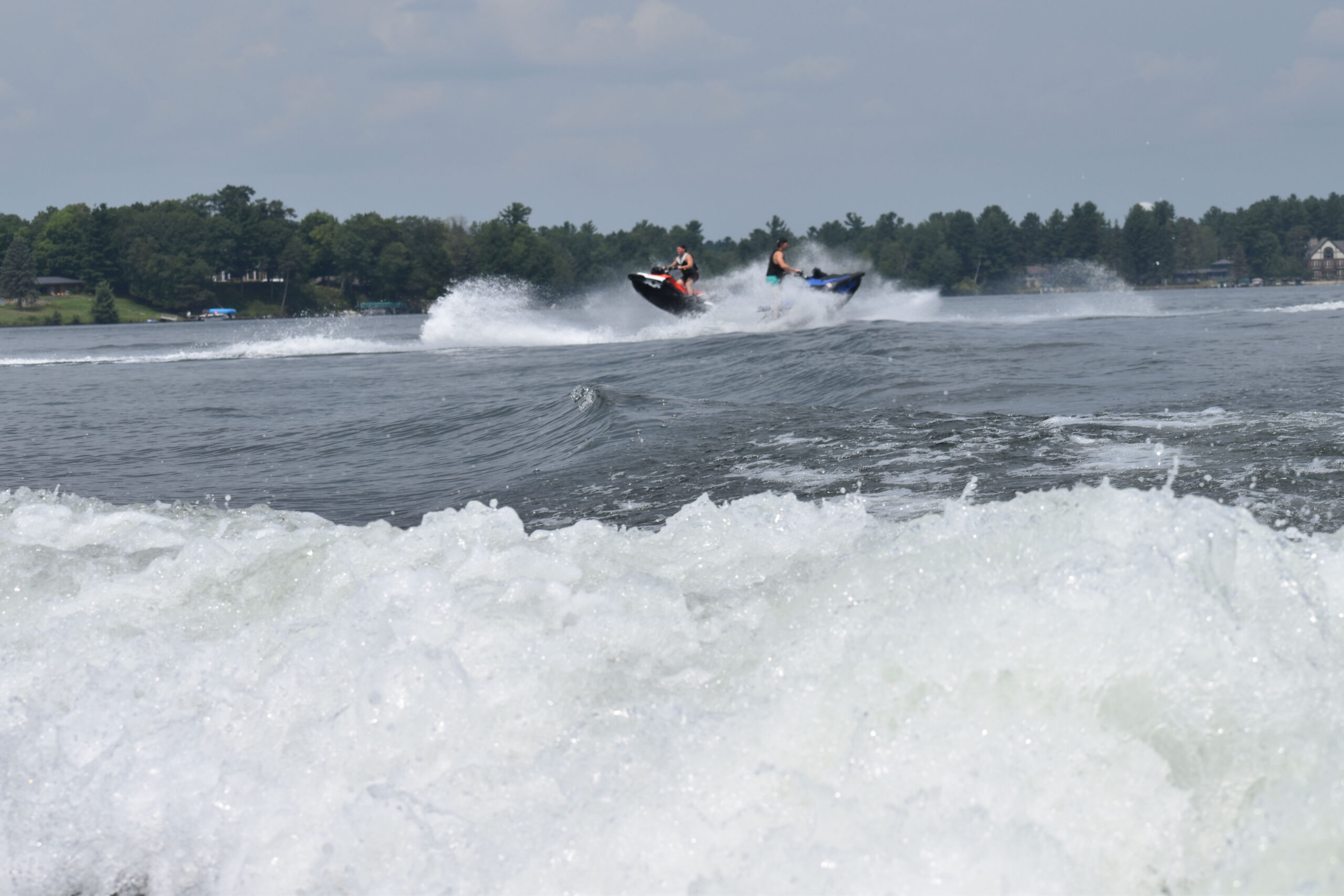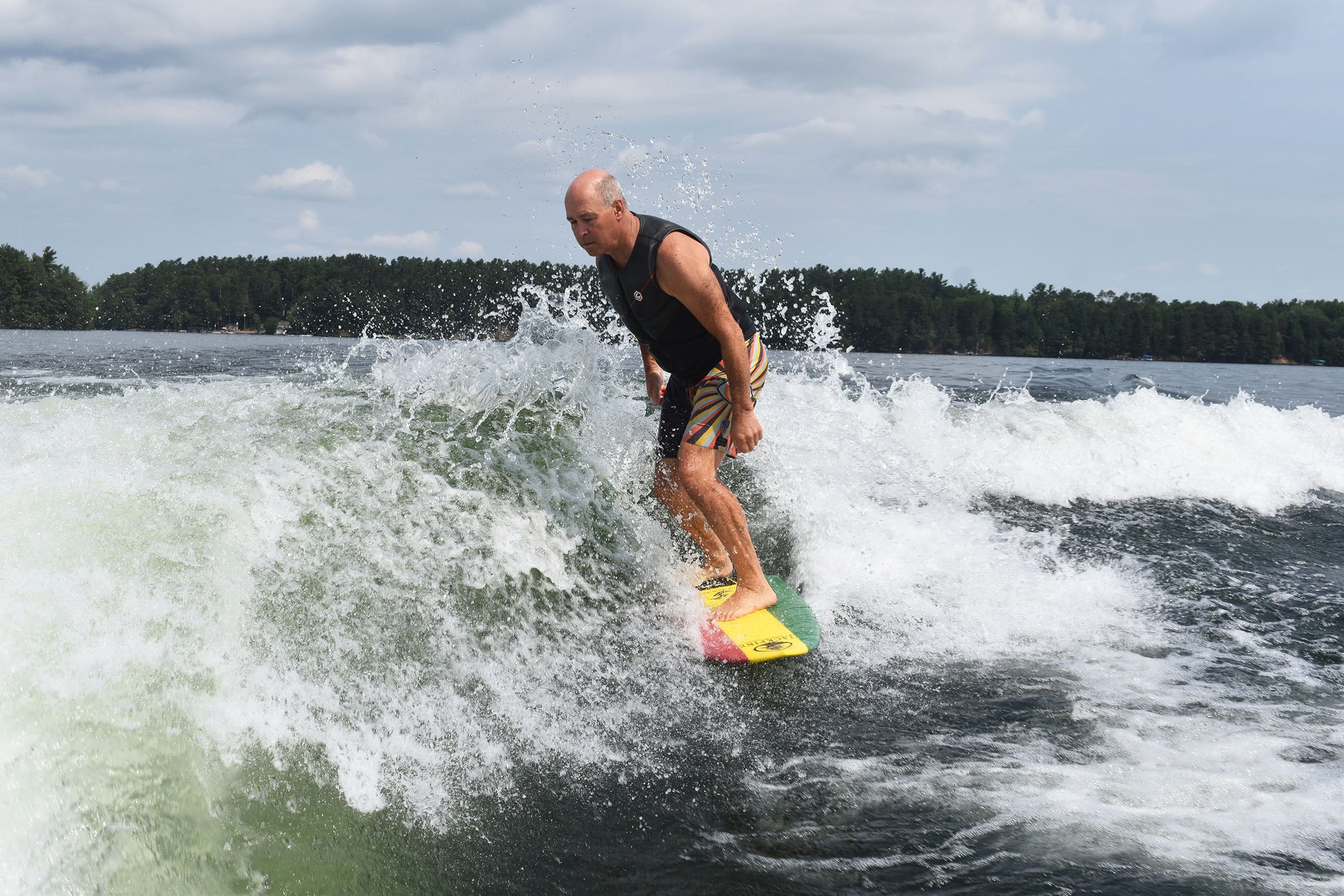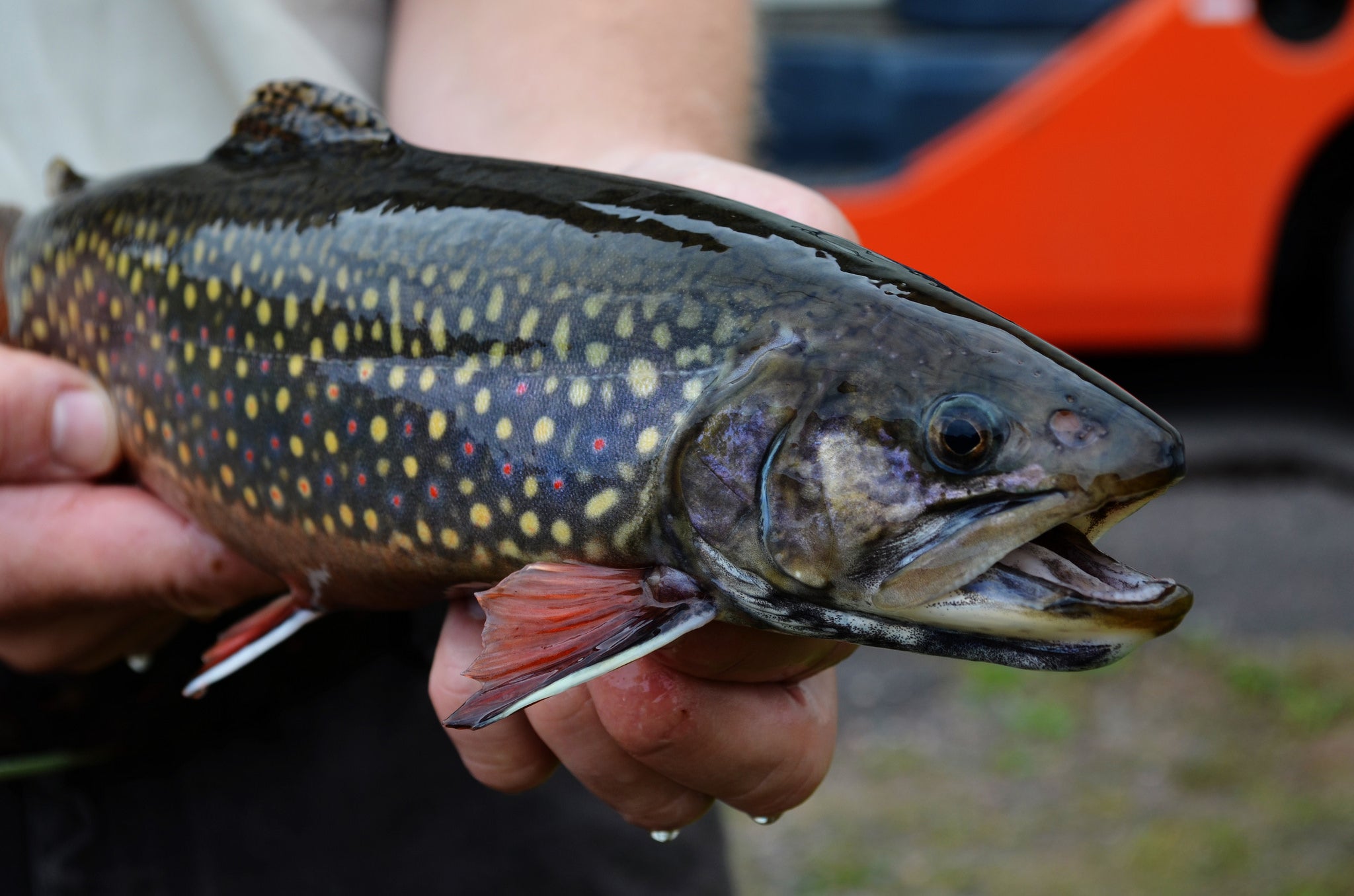The Department Natural Resources Board approved an expansion of motorized trolling for fish on Wednesday, despite objections from resort owners and veteran anglers.
The Walker administration has been revising a proposal shot down in previous years to allow motorized trolling – in which a boat moves slowly, drawing fishing lines behind it through the water – in all inland waters of the state.
Several northern Wisconsin anglers and resort owners told the DNR Board, which was meeting in Green Bay on Wednesday, that the expansion is not wanted. Jim Macomis, who fishes on the Turtle Flambeau Flowage, says motorized trolling in inland waters especially for muskies is not a sport.
News with a little more humanity
WPR’s “Wisconsin Today” newsletter keeps you connected to the state you love without feeling overwhelmed. No paywall. No agenda. No corporate filter.
“This is supposed to be sportfishing,” said Macomis. “In casting, we stand up. We drift with the wind, feeling it on our skin. We constantly throw these huge lures; we retrieve, often fast. We get tired – but that’s part of the enjoyment of the activity.”
Others worry that allowing more trolling will hurt the musky population in many lakes, though DNR staff say that’s not the case. Board members considered several amendments before deciding to make statewide a three-year experiment beginning next year. Board member William Bruins offered the three-year sunset amendment.
“That will allow for fact finding,” said Bruins. “That would allow for social adjustment. But there would be certainty that that would end in three years. And if there’s something better out there, we could grab on at that time.”
The board also decided that in 17 counties currently not open to trolling, the practice would be limited to one line per angler and no more than two lines per boat. State lawmakers can still review the board’s action.
Wisconsin Public Radio, © Copyright 2025, Board of Regents of the University of Wisconsin System and Wisconsin Educational Communications Board.







